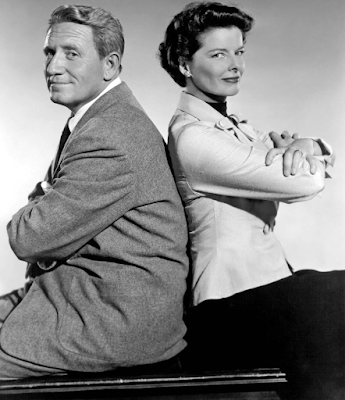Dan Riley's Blog, page 3
October 9, 2020
On Hiatus, Week 10
Spence and Kate do legal battle again
in the the award winning play, SpinelliTime to lighten it up a bit and take a look back at how we all got here...
Mo' better self promotion here: Now Playing Black Panther
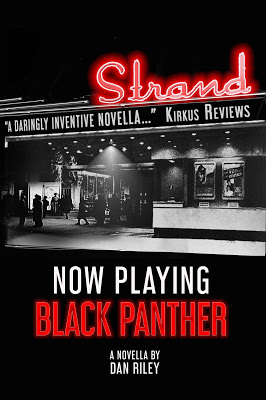
October 4, 2020
Walt Whitman Weighs In
October 3, 2020
On Hiatus, Week 9
 The Patient Zero
The Patient ZeroThis week The Nobby Works offers a reminder that he was mentally ill before he was physically ill...and in fact his malignant physical health is a direct result of his malignant mental health.
September 26, 2020
On Hiatus, Week 8
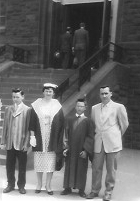 The Riley in their Sunday morning finery,
The Riley in their Sunday morning finery, St Patrick's Church, Thompsonville, Connecticut, 1959
With Catholic trending in extremis this weekend...if not all next week...it's time to recall the one true thing renowned right-wing bigot Pat Buchanan ever said: Anti-Catholicism is the anti-Semitism of the left. And with that The Nobby Works takes a look back at its own less hysterical view of Holy Mother Church.
September 18, 2020
On Hiatus, Week 7
 Cult leader and followers. Can you be in this picture?
Cult leader and followers. Can you be in this picture? This week the Nobby Works provides a last chance for voters to check their cult status at the door in this look back at a highly useful post.
September 13, 2020
On Hiatus, Week 6
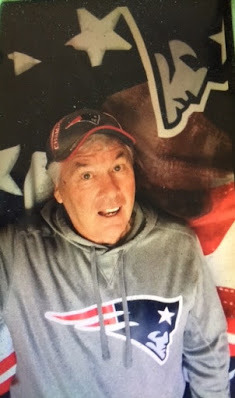
September 4, 2020
On Hiatus, Week 5
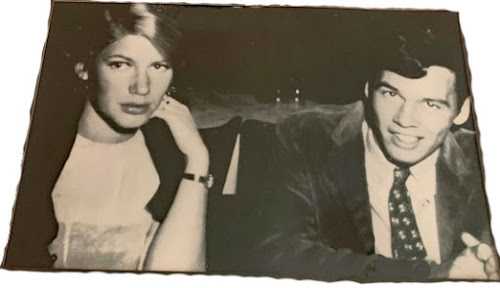 Grossinger's New York, October, 1966
Grossinger's New York, October, 1966After that brief interlude for an invigorating climb up Mt. Ulysses, The Nob is returning to hiatus in time for a 52nd (!!) anniversary celebration. But not without first reposting this appropriate and most useful post from anniversary #50.
August 29, 2020
Climbing Mt. Ulysses, Part III: Woman on Top
 In her masterful film Jame's Joyce's Women, Fionnula Flanagan
In her masterful film Jame's Joyce's Women, Fionnula Flanagan plays Molly Bloom in one of the most sensual performances
in cinematic historyAnd then there’s Molly Bloom. I’m not qualified as a feminist, or a woman for that matter, to declare her a feminist icon. But as a writer and humanist I feel free to call her one of the greatest fictional characters regardless of gender…punctuation and capitalization be damned. She is woman, hear her roar:
“show them attention and they treat you like dirt I dont care what anybody says itd be much better for the world to be governed by the women in it you wouldnt see women going and killing one another and slaughtering when do you ever see women rolling around drunk like they do or gambling every penny they have and losing it on horses yes because a woman whatever she does she knows where to stop sure they wouldnt be in the world at all only for us they dont know what it is to be a woman and a mother how could they where would they all of them be if they hadnt all a mother to look after them what I never had thats why I suppose hes running wild now out at night away from his books and studies and not living at home on account of the usual rowy house I suppose ”She’s also got a bit of misogyny going:
“still its a lovely hour so silent I used to love coming home after dances the air of the night they have friends they can talk to weve none either he wants what he wont get or its some woman ready to stick her knife in you I hate that in women no wonder they treat us the way they do we are a dreadful lot of bitches I suppose its all the troubles we have makes us so snappy ”In a much earlier post about my father, I mentioned how dad used to embarrass me by pronouncing the letter H as haitch rather than aitch. Later I learned that such pronunciation was a way the Irish stuck a finger in the eye of their punctilious British overlords. I was heartened to hear dad’s lingo rebelliousness echoed throughout Ulysses. And I thought of dad’s linguistic idiosyncrasies again when I heard Molly Bloom say:
“I unbuttoned him and took his out and drew back the skin it had a kind of eye in it theyre all Buttons men down the middle on the wrong side of them Molly darling he called me what was his name Jack Joe Harry Mulvey was it yes I think a lieutenant he was rather fair he had a laughing kind of a voice so I went round to the whatyoucallit everything was whatyoucallit”Much to his son’s dismay, dad, too, used “whatyoucallit” for everything all the time. How was I to know that my father’s illiteracy had such strong literate roots?In Ulysses Joyce plays by turns a: LinguistDramatist Historian (world and local)DiaristTheologianAccountantPoetPhilosopherPornographerIt is the last, of course, that brought Joyce his greatest notoriety…at least in Puritan-borne America…where it was famously banned as obscene for 13 years after publication and where black market copies were confiscated and burned by the (currently sanctified) US Post Office. Much of the grist for those obscenity charges stems from Molly Bloom’s languorous, largely lascivious, unpunctuated stream of consciousness soliloquy:
“if I am an adulteress as the thing in the gallery said O much about it if thats all the harm ever we did in this vale of tears God knows its not much doesnt everybody only they hide it I suppose thats what a woman is supposed to be there for or He wouldnt have made us the way He did so attractive to men then if he wants to kiss my bottom Ill drag open my drawers and bulge it right out in his face as large as life he can stick his tongue 7 miles up my hole as hes there my brown part then ”If Ulysses had arrived on American shores in the early 21st century rather than the early 20th, it’s unlikely that it would have run into the troubled waters of obscenity charges. That doesn’t necessarily mean it would’ve had smooth sailing. There’s a good chance Joyce’s book would’ve run afoul of the Political Correctness Regime and faced a fierce informal quarantining. Now as then, Ulysses probably would triumph as a monument to free expression and humanism. Over her 22,000-word soliloquy Molly Bloom reflects rapturously on her life’s resentments, jealousies, triumphs, tragedies, deceits, longings…all the things that make her a whole, mature woman in full. It builds to an orgiastic climax where Joyce, who has doted on his male characters Stephen Daedalus and Leopold Bloom for more than 1400 pages, gives the last, life-affirming word to his vibrant female creation:
“where I was a Flower of the mountain yes when I put the rose in my hair like the Andalusian girls used or shall I wear a red yes and how he kissed me under the Moorish wall and I thought well as well him as another and then I asked him with my eyes to ask again yes and then he asked me would I yes to say yes my mountain flower and first I put my arms around him yes and drew him down to me so he could feel my breasts all perfume yes and his heart was going like mad and yes I said yes I will Yes.”
And now this. No soliloquies, but a nice tribute to Chadwick Boseman: Now Playing Black Panther

August 23, 2020
Climbing Mt. Ulysses, Part II: The Ascent
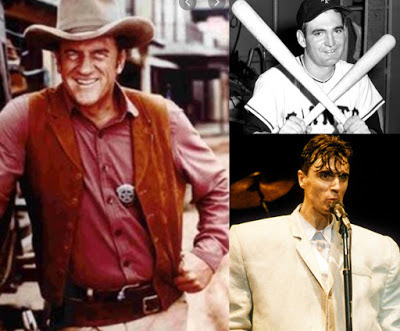 A Joycean puzzle for Ulysses insiders only
A Joycean puzzle for Ulysses insiders onlyIn one of my first college compositions I itemized the contents of our family “junk” drawer…everyone has one: rubber bands, keys for locks that no longer exist, a souvenir ashtray from Niagara Falls, broken pencils, very old Lifesavers, grocery store coupons, a doorknob, birthday candles, a screwdriver, a small spring that seems useless but you don’t dare throw it away.
My freshman lit instructor was unimpressed. “It’s a list”, he said with mild damnation. I was not at all familiar with James Joyce at the time, but if I had been I would’ve argued that it was Joycean. Joyce’s Ulysses is a Sears & Roebuck catalog of lists. The list of lady items on a trunk I referenced in last week’s post is just one of a multitude that appear throughout the book. A rule I’ve always tried to follow with my writing is that if no one gets it, the problem is with the writing. That is not a rule that applies, though, when just some one doesn’t get it. If one person doesn’t get it, it’s more complicated depending on whom the disapproving person is and when in the creative process the disapproval gets expressed. After your book has made the bestseller list? Well, then, Pshaw! But if it’s in the delivery room and the head is just peeking through and the attending critic shrieks, “It’s horrible!”, an abortion may ensue…and that could be a mistake. In my encounters with the lists in Ulysses I wondered what the impact may have been on Joyce if he had my comp instructor in college. Would he be ruined for writing lists for life? Would it have led to a more streamlined, less complex, Ulysses? Or would it have shaken Joyce’s confidence in his writing so much that he never would have dared write his masterpiece? Joyce’s confidence in writing Ulysses is no small matter. I’m in total awe of it. As much as he was consciously reimagining Homer’s Odyssey, he was still striving for something wholly original that would confound critics, scholars and readers for ages…and yet still appeal to them. That was a gamble that has clearly paid off. But what was it like when he was embarking on a book that would push all kinds of boundaries in fiction? Seven years writing a book that would dare readers to accept stream-of-consciousness, obscure allusions, punctuation pandemonium, nonlinear story telling, an overall veneer of chaos. Brazillian writer Paul Coehlo condemns it all: "Today writers want to impress other writers," he says. "One of the books that caused great harm was James Joyce's Ulysses, which is pure style. There is nothing there.” Coehlo claims that the job of the modern writer is to make the difficult easy. He speaks for an era where a high premium is placed on the mass marketing potential of books, where books and courses abound telling writers how to write bestsellers, where the highest praise that can be made of a work of fiction is that it would make a great movie or Netflix series. The writers of our popular culture write for instant gratification; Joyce who was not above the allure of celebrity was nonetheless writing for the future. He wanted to emulate Homer not only in his storytelling but in his endurance. The most revelatory insights to emerge for me from Ulysses was how of our time Joyce is. On universal guaranteed income
“I’m, he resumed with dramatic force, as good an Irishman as that rude person I told you about at the outset and I want to see everyone, concluded he, all creeds and classes pro rata having a comfortable tidy-sized income, in no niggard fashion either, something in the neighbourhood of £ 300 per annum. That’s the vital issue at stake and it’s feasible and would be provocative of friendlier intercourse between man and man. At least that’s my idea for what it’s worth. I call that patriotism. ”On exploitation
Wine, peltries, Connemara marble, silver from Tipperary, second to none, our farfamed horses even today, the Irish hobbies, with king Philip of Spain offering to pay customs duties for the right to fish in our waters. What do the yellowjohns of Anglia owe us for our ruined trade and our ruined hearths? And the beds of the Barrow and Shannon they won’t deepen with millions of acres of marsh and bog to make us all die of consumption?On deforestation
—As treeless as Portugal we’ll be soon, says John Wyse, or Heligoland with its one tree if something is not done to reafforest the land. Larches, firs, all the trees of the conifer family are going fast.Joyce’s style, which Coehlo dismisses, is actually many styles…and anticipates styles to come. Check this passage out and try not to think of the styling of Dr. Seuss or Lin-Manuel Miranda:
“—Save them, says the citizen, the giant ash of Galway and the chieftain elm of Kildare with a fortyfoot bole and an acre of foliage. Save the trees of Ireland for the future men of Ireland on the fair hills of Eire, O.”
“One rapped on a door, one tapped with a knock, did he knock Paul de Kock with a loud proud knocker with a cock carracarracarra cock. Cockcock.Joyce’s humor runs the full gamut from the sublime to the ridiculous to the epic. At one point Leopold Bloom goes to put on a kettle of tea:
Tap.”
He removed the saucepan to the left hob, rose and carried the iron kettle to the sink in order to tap the current by turning the faucet to let it flow.That goes on like that for another 150 words, and then:
Did it flow?
Yes. From Roundwood reservoir in county Wicklow of a cubic capacity of 2400 million gallons, percolating through a subterranean aqueduct of filter mains of single and double pipeage constructed at an initial plant cost of £ 5 per linear yard by way of the Dargle, Rathdown, Glen of the Downs and Callowhill to the 26 acre reservoir at Stillorgan, a distance of 22 statute miles, and thence, through a system of relieving tanks, by a gradient of 250 feet to the city boundary at Eustace bridge…
What in water did Bloom, water lover, drawer of water, water carrier, returning to the range, admire?It goes on like that for another 400 words. So that when you come upon Joyce writing the words, “To cut a long story short”, it arrives with perfectly steeped hilarity. Sorry, Paul Coehlo, it is not at all true that “there is nothing there."
Its universality: its democratic equality and constancy to its nature in seeking its own level: its vastness in the ocean of Mercator’s projection: its unplumbed profundity in the Sundam trench of the Pacific exceeding 8000 fathoms: the restlessness of its waves and surface particles visiting in turn all points of its seaboard: the independence of its units: the variability of states of sea: its hydrostatic quiescence in calm: its hydrokinetic turgidity in neap and spring tides…*
* And I fully realize that lifeless on a page like that such text seems near bureaucratically awful, but again hearing it read on an audio book by a talent like Jim Norton raises it to poetic heights. You've heard about people who could read the phone book and make it sing? That's Jim Norton.
Next week, Climbing Mt. Ulysses, Part III: Woman on Top
Herewith a book considerably shorter than Ulysses Now Playing Black Panther

August 18, 2020
Climbing Mt. Ulysses, Part 1: Base Camp
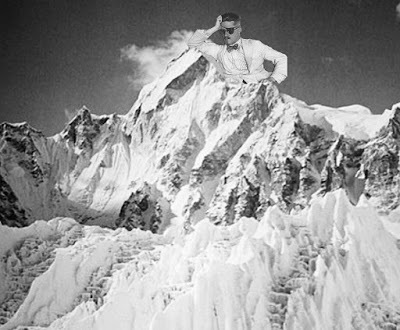
Being somewhat of an Irish Catholic boy, you would think I would have had at least a passing acquaintance with James Joyce by the time I got to college, but I did not. Without benefit of a time machine, I would still wager there were no more than a handful of copies of Joyce’s works anywhere in my hometown…and certainly not in any of our libraries...so I can blame my environment for this lapse. When I got to my second year of college, however, I shared an apartment with Marty Bresnick, a Jewish guy from New York--and wouldn’t you know it? It was Marty who introduced me to Joyce, though not directly. With well-thumbed pages of the paperback behemoth sitting on his lap, Marty would engage in long, deep into the night conversations about Ulysses with friends. They were conversations you earned your way into by reading the book. I knew by the daunting length of it I would never manage to read it to merit a place in those conversations before graduation. So I just listened from a distance. It was like listening to guys back home with their heads under the hoods of their cars discussing camshafts and pistons, except I could care less about cars, but very much wanted to be a literary man. Later in the school year, Marty was featured in the cast of a university production of Joyce’s Portrait of the Artist as a Young Man , giving me a superficial grounding in Joyce. Then by the end of the school year, Joseph Strick’s film version of Ulysses came out, and I had an easy albeit short thread to hang onto whenever this masterpiece of modern literature came up in conversation. Finally the fabulous Fionnula Flanagan directed and starred in a fantastic film in the 1980s called James Joyce’s Women , which rounded out my knowledge of Joyce just enough to get me through the rest of my life being pretty conversant in a writer whose works I had never actually read. Technically I still haven’t read Joyce, but this pandemic pushed me to do things I’ve long wanted to do but hadn’t. So I downloaded audio books of Portrait of the Artist and Ulysses and gave my ears wholly over to both...Yes...yes.... As I’ve written before, when it comes to audio books, you end up judging the narration as much as the writing--for better and worse. In this case it was for much the better. Colin Farrell’s reading of Portrait of the Artist was transcendent. As much as I enjoyed the book itself, I found myself going back to listen to Farrell read random passages just for the lilt of his lovely Irish voice. It has become my go-to remedy for sleepless nights…as close as I’ve ever come to having bedtime stories read to me.
When it came time to advance from ascending the Denali that was Portrait of the Artist to the Everest that is Ulysses, I hoped to find as good a guide as Farrell to take me to the top. In the Audible book version I found two guides—the magnificent Jim Norton who reads all of the parts of the book which do not come directly from Molly Bloom and Marcella Riordan who reads Molly with all the slyness and sensuality the part demands. There are some who may say that taking Ulysses audibly is like taking a chair lift up Everest, but I would argue with this new experience behind me that Joyce, like Shakespeare, is meant to be heard not read to appreciate the musicality of his writing. There are those long passages where he seems to lose “the plot” and resorts to endless listings of names…trees, streets, saints, lovers, random items in a drawer…random lady things on a trunk:
“What miscellaneous effects of female personal wearing apparel were perceived by him?A pair of new inodorous halfsilk black ladies’ hose, a pair of new violet garters, a pair of outsize ladies’ drawers of India mull, cut on generous lines, redolent of opoponax, jessamine and Muratti’s Turkish cigarettes and containing a long bright steel safety pin, folded curvilinear, a camisole of batiste with thin lace border, an accordion underskirt of blue silk moirette, all these objects being disposed irregularly on the top of a rectangular trunk, quadruple battened, having capped corners, with multicoloured labels, initialled on its fore side in white lettering B. C. T. (Brian Cooper Tweedy).”You no more have to struggle with the “sense” of those passages than you do with the chords of the Moonlight Sonata. You just let it wash over you. That would be my first advice to anyone who wants to follow my approach to climbing Ulysses. Get the Norton/Riordan reading available on Audible and when you put it on, let it play like a symphony…go where the motifs take you and don’t fret if you get lost…trust the narrators and the writer to deliver you to the breathtaking views at the top. I also revisited that 1967 film version, which seems only available on You Tube. It’s highly abridged of course…and the Nighttown sequence unfolds as if in a Fellini film if Fellini had been born Irish and less talented. But it does help in navigating the book by providing a map of the general mountainscape and its trenchant twists and turns. Finally the Gutenberg Project offers a free, searchable complete text which I have found invaluable in going back to clarify, review, or just see the printed words--as I guess Joyce intended. Though, it should be said, he was a musician, which leads me to believe that had he written in the last half of the 20th century rather than the first half, Ulysses may have been born a two-record set competing with double album giants Dylan's Blonde on Blonde and the Beatles White Album for pop prominence. Completing Ulysses has taken the longest standing item off my bucket list, and I can’t fully express what a relief and rewarding achievement it’s been. This summer I’ve had the extraordinary experience of having two cultural events exceed my expectations despite enormous hype about both. The first was watching the film version of Hamilton on the Fourth of July, the second was Ulysses which has now claimed top spot on my list of books to be shipwrecked with on a desert island. These have been truly remarkable, soul-salvaging experiences in a summer of blood-curdling dismay and despair. In posts to come, I’ll try to address some of the qualities, attributes and utter surprises of Ulysses that have so filled me with a sense of wonder and discovery at an age when such a sense would seem to have been long past spent.
Yes, how dare I...but here's a word from my own humble effort: Now Playing Black Panther


